6 tips for finding your next project
For some parts of the country, it’s time to pickle our fun automotive toys and switch to either dreaming about or preparing for the driving season that is oh-so-far away. There is also a third option: buying a project and seeing how close you can get it to ready to drive before the snow clears and rain rinses the salt off the roads. Trapped inside the confines of the house or garage—if you’re lucky enough to not be frozen in there—the mind starts to wander and think that maybe one more project wouldn’t be such a bad thing.
The key to picking a project is being really honest with yourself and setting a goal. Buying a pile of iron oxide and stripped bolts can be a little retail therapy but it will be short-lived if you jump in and buy the first not-shiny thing you see. You have the desire, the funds, and the approval from your better half; so here are six tips for helping find your perfect project.
Let it find you

Passive searching can be incredibly powerful at finding things, it’s also the easiest. Simply tell anyone you know or talk to that you are looking for a project. You might be impressed at the amount of stuff that quickly comes out of the woodwork once there is a ready buyer. Also, you never know which of your gearhead friends has a network or connection you don’t. The number of times I’ve heard, “if you know someone looking for a. . . ”
Work on what you have
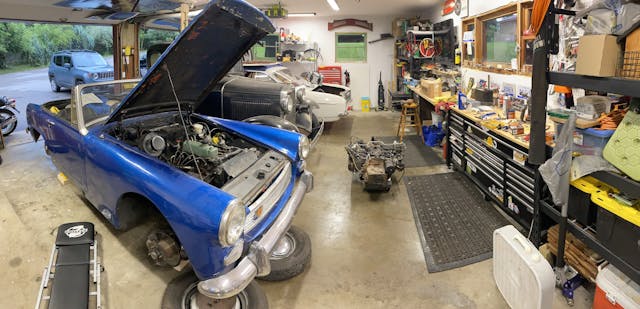
If you are anything like me, the true reason you are looking for a project is that some project you already own needs something you don’t want to do and you’re simply attempting to distract yourself by just starting on something else and hoping your current problem fixes itself. No? Just me? I don’t believe you.
Set a realistic budget and stick to it
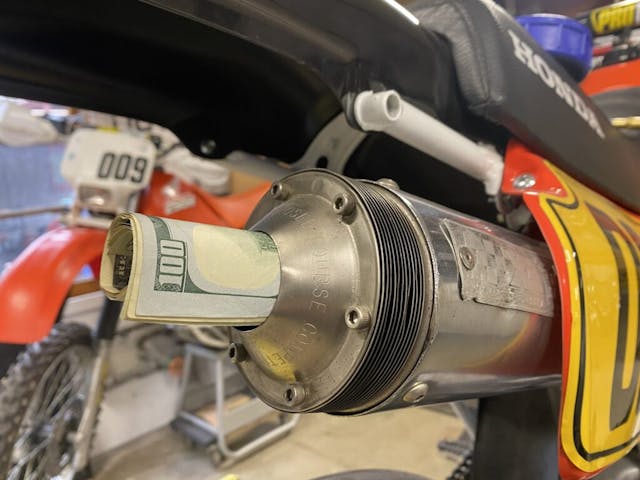
Project cars are nearly always some form of a money pit. We all accept this at some level. That means you know you are going to sink way too much into whatever you buy, so therefore it’s at least a little prudent to not blow your entire budget just buying the thing. I’ll always advocate for buying the best version of whatever you like that you can afford, but if you set a budget be sure to stick to it. Otherwise, you are setting yourself up for frustration if you have a project and no funds to actually do any work on it.
Go exploring (look in weird places)
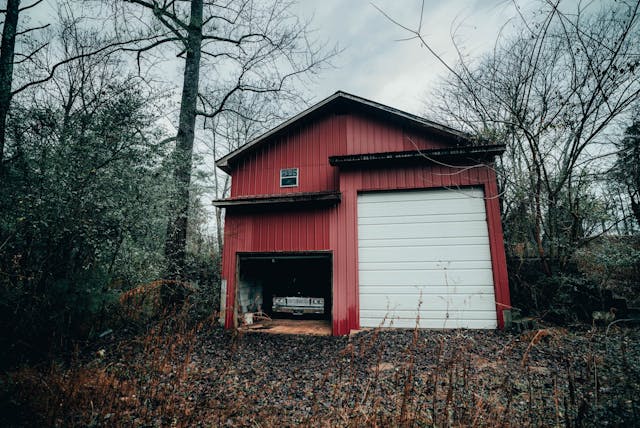
Drive one or two cities over for a day trip to drive by the local mechanic just to see what’s parked around the shop. Just driving around to places you don’t normally go can turn up some interesting finds. Tom Cotter—Hagerty’s Barn Find Hunter—has written fantastic books about the luck of discovering cars that weren’t hiding but merely just off the beaten path.
Know what you want and are willing to do
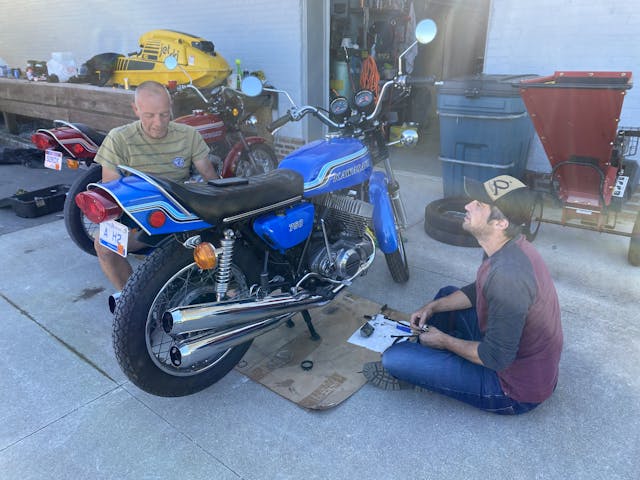
Not all project cars are the same. It might be more accurate to say no two are alike. Each and every vehicle will have different needs and wants over time, it’s just how an assembly of thousands of parts works. So set yourself up for success and do a little soul-searching before starting to sift through the classifieds. Decide what kind of tasks you are interested in doing and what you are not equipped for or generally just don’t want to deal with. If you don’t have a welder or grinder, buying a project car that needs a lot of rust repair would be foolish. Same with buying something with hacked-up wiring if you don’t have the patience to sit with a multimeter for hours. Think past the joy of purchasing and deep into how you will be spending your time: working on it.
Call up the club
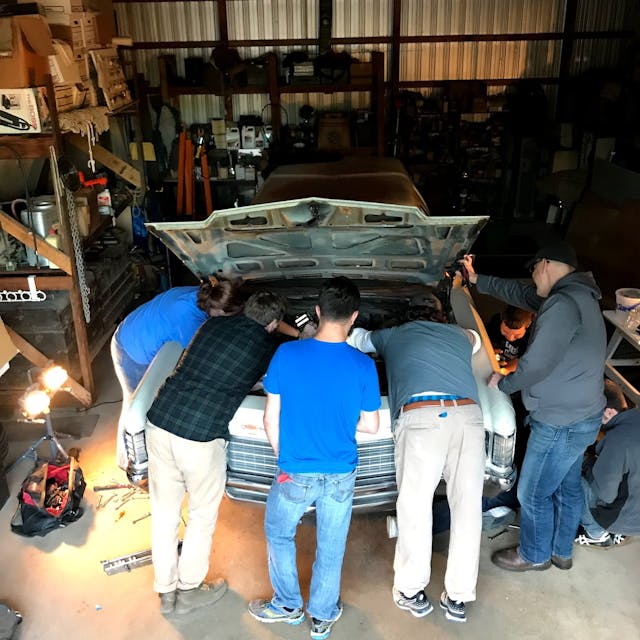
Not sure if the project you want is actually what you think it is? Or maybe just feel like you have a blind spot about what you are considering getting into? Reach out to a car club dedicated to that niche. From Facebook to forums and in-person gatherings, it is often the members of a club who love specific models and brands who are best suited to find, inspect, and conclude if a project is worth saving. The joke for a lot of enthusiasts of niche vehicles is that once someone hears you have one, the cars start multiplying on their own. Most club members have leads on cars they wish they could buy and want to see go to a good home. Club members often know where good project cars are resting and are happy to share since it keeps one of their favorites on the road.
Now go forth and find those winter projects. When rains come and wash the roads we shall all emerge from the garage caves with pride for hopefully we will have taken something bad and made it…less bad. Good luck out there.
***
Check out the Hagerty Media homepage so you don’t miss a single story, or better yet, bookmark it. To get our best stories delivered right to your inbox, subscribe to our newsletters.
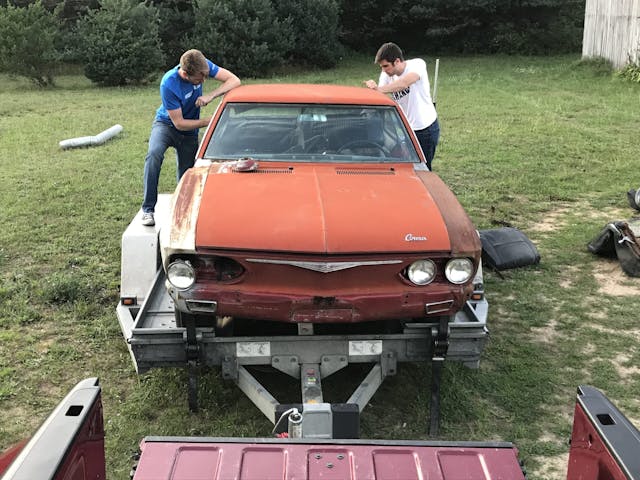


I have 3 additions.
1) Try to get something they made a LOT of. I’m thinking Mustangs off the top of my head. That way parts and after market parts will be plentiful and lower cost.
2) Triple what you think it will cost.
3) Quadrupole what you think the time will take.
Have fun!
We always think we’ll be the exception to numbers 2 and 3. We’re always wrong!
No project car is ever completely finished for most of us. Always spending money and time to improve things as long as you own them.
I used to say “double the price” and “triple the time” but MeJ is right- always closer to three times the cost and four time the time. Like a “mostly done” project- that way you can avoid a lot of the time and expense (but be careful to FULLY check it out because of course there is a lot of less than stellar work out there)- nice to get a mostly done project back on the road in 6 months rather than a full blown redo in 6 years!
You hit the nail on the head. You can buy a Mustang or Camaro shell new! How much more easy can that get!
Lessons learned the hard way for me!
Know your limitations financially and skill wise.
Know the investment value as to how much it will be worth when you are done.
Know how difficult some parts can be to find.
Look at a complete car like you are looking at and decide if you will exceed the amount they are asking vs your restoration,
From a purely financial situation, sound advice.
From an irrational and emotional position, it is best to look at the project pragmatically. Do you have a protect car with deep, long memories in the family? Probably set aside the value proposition to a point. You can put 6 figures into a 5 figure car to make it perfect, and if it takes 10 years to do it, maybe it is better to get it to 90% for 1/3-1/2 the price and just enjoy it.
The next generation may not want it. They certainly won’t want your unfinished project.
Parts hard to find. A cousin of mine was restoring a Siata – V-12. There was NO water pump to be found. He paid $2,500 dollars for a one-run casting!
“…the true reason you are looking for a project is that some project you already own needs something you don’t want to do and you’re simply attempting to distract yourself by just starting on something else and hoping your current problem fixes itself.”
Ouch. Dozens of flipped vehicles and parted-out vehicles later, my junk that I want to keep is still not running and not being worked on.
Yeah, looking into that mirror made me cringe a little. Seems the hunt can become more exciting that the find in some cases. I’m finally starting to realize this and just enjoy shopping and researching. When the right one shows up I’ll be ready to jump.
One more: make sure you’ve actually driven a good example or two the type of car you’re after before buying a non-drivable project. It’s no fun to put all that time, money and effort into a project only to discover you don’t really like driving it after it’s finished. Been there, done that.
Amen. I bought a ’53 Studebaker just like the one I had in high school – 65 years ago. It turns out my fond memories had been heavily modified by time – it’s not the car I remembered. “Act in haste, repent at leisure”
Since we are starting with Kyle’s premise that this is a project to do over the winter, it seems to me that the obvious #1 tip is to determine if/that you have space to work on it. Too basic? Maybe. But having interest/ability/budget and friends ain’t gonna get you very far if the project has to sit on a trailer under a tarp all winter because you don’t have suitable (under cover) working conditions while that snow is flying!
Oh, that’s a great tip. Even in the warmer months!
Anyone who wants to tinker on old cars and does not have usable garage space is a masochist
Man, you just raised the percentage of certified masochists by about 8000%…
Agreed. I love cars and love working on them, but don’t have a garage. Still…I find a way. Don’t piss on our love for cars because we don’t have, or can’t afford, a garage!
I learned my “no-garage” space very well … and have now “overcompensated”.
I LOVE my garage!!!
That winter project usually turns out to be several winters.
That’s so true, I’ve got one bay. Doesn’t stop anything from happening, great. Drawback, having to roll a shell on a rotisserie outside to get another in to use the lift. Not bad you say, try that when the snow is a few feet high. I have a winch on the back wall and enough slope on the driveway. Then the starts snow coming down again.
I started rebuilding my ’32 3WD coupe in an open carport – in northeast Mississippi in a rented duplex. It gets COLD there. Hey! It had a concrete floor. Previously all I had was a gravel driveway. Bilt a sand blaster out of a commercial air conditioning unit. Went over the body inside and out. Laminated, sawed, and carved new wood for hanging the doors – using the old wood for a pattern. When I bought my first house – with an enclosed two car garage – I knew there was a heaven on earth.
Definitely the first two…
Finish the one you got before hunting for the next one. I know a lot of people who are more into it for the hunt and can’t hang for the long road of completion. They end up with way too many broken toys lying around of they are constantly buying high and selling at a loss
Definitely let them come to you. If you are a car guy, people know it and will often come to you with that broken toy they gave up on. In many cases, these can be had on the cheap, and since you know the seller you have some idea of what you are getting into.
Knowing your limitations and staying in your comfort zone… not real sure on that one. I have picked up a couple of projects in recent history that had problems I wasn’t really prepared to deal with. So I got prepared and grew. It opens things up to what I am willing to take next
Hell yeah, a good approach is to get out of your comfort zone, challenge yourself, learning new skills and overcoming obstacles is a key part of the hobby. Be prepared to seek out other car guys, most of the time they are eager to help. When I started, I knew literally nothing other than I liked cars. Years later, I’ve done rust repair, and rebuilt just about everything except an automatic transmission.
Last thing I want is yet another project; I have worked on enough stuff (not just cars, either) in my life. I like to drive, not wrench!
Looks like a 1965 Ford Fairlane
What is that car in the left side of the red garage? It looks a little like a Chrysler, but not quite…?
Has in got an LS in it yet?
My first project was a 1929 Ford Tudor, and it was a big project that took three trips to pick it up. I went full speed for the first 20 years and accomplished about 40% toward a drivable car. Sending 3 kids to college put a halt to that one and it sat in my garage for another 20 years. Then son number 2 got to driving age and wanted to put my Trans Am back on the road so he could drive it. We put on new brakes, a rebuilt Trans, removed the interior to change it, and started on the body work. Then he went off to school and that project stopped. My neighbor who is an accomplished restorer kept driving by and looking at my garage, and he started pestering me to sell the 2 cars. Finally, my wife and I decided it would be a good idea to sell them and use the proceeds to buy a car that’s all restored. That was 4 years ago, I still look at my empty garage, and I have 30 grand saved up for my collector car and every time I bring it up with my wife, the ridicule flag is raised. Get your collector car before life takes over.
You got that right. What I could use is 6 tips for funding my next project.
BEWARE of the basket case. You can see the big parts, but you never know how much of the small bits have been lost. Plus you have to know how it all goes together and it what order. Also watch out for those ‘rebuilt’ engines and parts. Unless you can see the receipts and know how long ago it has been, don’t believe a word of it. That $5000 ‘race’ engine might have been stored improperly and is now no good and needs to be redone. That true ‘big block’ car may have a ‘Krylon rebuild’ on a 366 dump truck motor. (Which is OK for a parking lot cruiser; just don’t pay extra for it.)
While projects cars are fun, and I have had several, I wonder what the future is for our hobby. As the world moves towards reducing the use of fossil fuels – and this will happen – is it advisable to find that big block muscle car project that you may not finish within 5 years? What will you do with the finished product in 10 years time?
Who cares? Seize the moment. None of us is guaranteed another minute, let alone 10 years.
Probably mentioned already, but always check for parts availability and support clubs etc. I saw a pair of cheap NSU Prinz’s recently but could not find much support. In addition, as said before I don’t have the space anyways. I have a running Corvair and a Porsche 914 taking up the garage and with traffic in Toronto these days they don’t make it out too often.
I did exactly that. I bought a 1952 BSA Golden Flash 650cc motorcycle in fair, easily restorable condition, for a fair price. Two years and a LOT of money later it was finished in Concours condition. I gassed it up and it started 2nd or 3rd kick, ran well after a few carburettor adjustments and was ready to ride. So, I put on my riding gear and took off on it’s first run since 1970 and it was a piece of crap! Not what I was expecting at all. I gave it a weeks rest, made some more adjustments to the carb. and timing, brakes etc, and tried again. Not enough improvement to make me change my mind as now I was going a lot faster it handled like dog in comparison to my 1956 Triumph Tiger 110. Less than a week later it was sold on! Two years of great expectations gone in a “Flash!”
Lots of great advice here in the comments section. If I may add another. Before buying that project car, research availability on parts to complete that project. Also, remember something similar to Murphy’s law. You are having the hardest time finding parts, but, once you sell it, parts for it just seem to spring up all over the place. Happened to me a couple of times. But, they say the “hunt” is part of the fun of the hobby.
Kyle, excellent work. I’m pretty much on average; that is, I let enthusiasm triumph over reality at times and also had much fiscally responsible moments. Then there is the ’66 Impala SS Coupe sitting in the barn staring
at me every time I go in there looking for something. The 283 in it is hopeless and I have no idea about the transmission. The car is unmarked on the exterior and complete in the interior. Of course it needs paint but
I am on the Left Coast so there is no rust. I paid cash and bought it for a very low number, and had it towed to my place. The car belonged to a customer of my mechanic’s shop which is how I found it. It was referred to me. So you are quite right.
Happy Holidays and stay well.